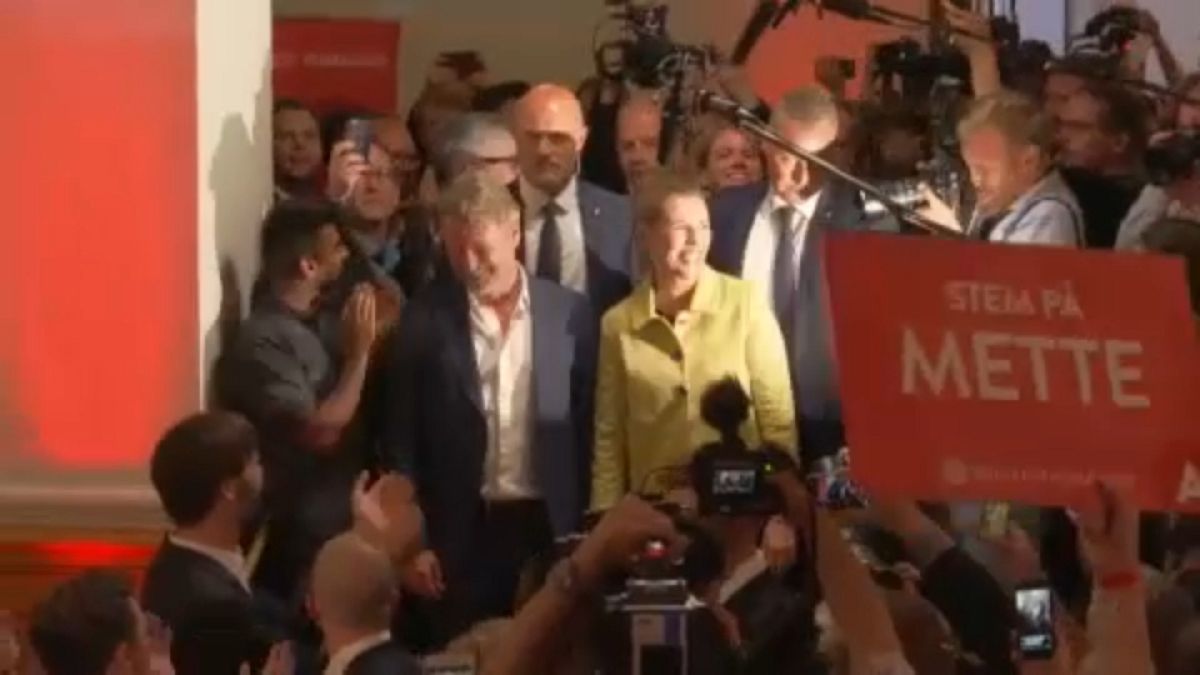Denmark's Prime Minister Lars Rasmussen conceded defeat to the Social Democrats in parliamentary elections and announced his government's resignation
Denmark's Prime Minister Lars Løkke Rasmussen has conceded defeat to the Social Democrat party in parliamentary elections and announced his government's resignation.
His liberal Venstre party, which has governed for 14 of the past 18 years, came second with 23.8% of votes. Rasmussen said he had called Mette Frederiksen, the leader of the Social Democrats, and told her that he intends to see the Queen to inform her of the election result and hand in the government’s resignation request.
After her election victory, Frederiksen told cheering supporters: "You chose that Denmark must have a new majority, that Denmark must take a new direction. And you chose that Denmark must have a new government."
Cuts in social welfare and migration dominated the elections. However, for some climate change is the priority. And 41-year-old Frederiksen has pledged to increase public spending on the environment.
"Well, I definitely think that this Social Democratic party has a better climate policy, so that's what I've been looking forward to the most," said Silke, a 23 year-old student.
Meanwhile, Rasmussen has stated that he is willing to participate in a new centrist government if Frederiksen is not able to form her own government.
The big loser was Kristian Thulesen Dahl, the leader of the Danish People's Party, who accepted that the populist, nationalist and anti-migrant party had suffered a big defeat, losing more than half of its previous vote.
"I will not abandon the ship in the middle of a storm. I will take responsibility and I will restore the party," he told supporters, promising to "listen to the message of voters".
The Danish Peoples Party, which saw its share of the electoral vote tumble to 8.7% from 21% in 2015, had supported Rasmussen's centre-right government in parliament.
The Social Democrat party, who were favourites in the election, saw its share of the vote decline in relation to 2015, but still clinched first place with 25.9% of the vote.
It is expected to benefit from gains for centre-left parties, with the left-leaning red bloc seen having 91 seats out of the 179 seats in the Danish parliament.


